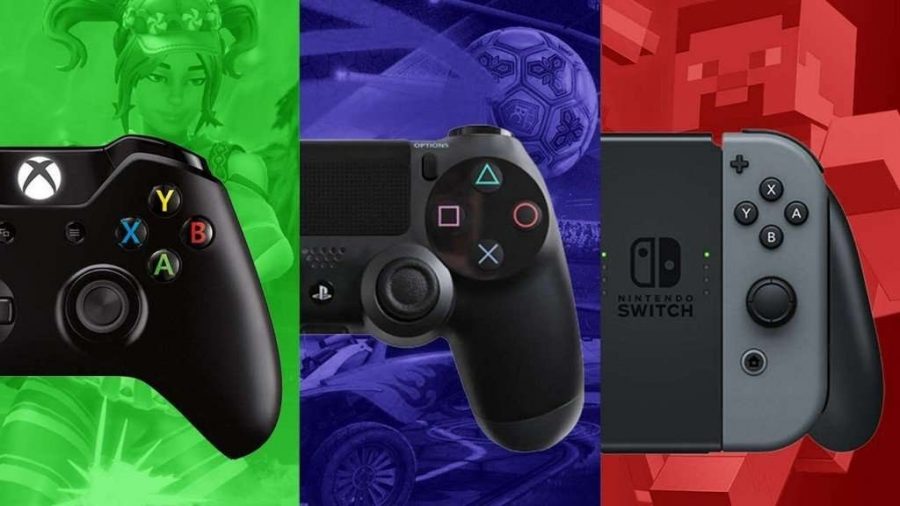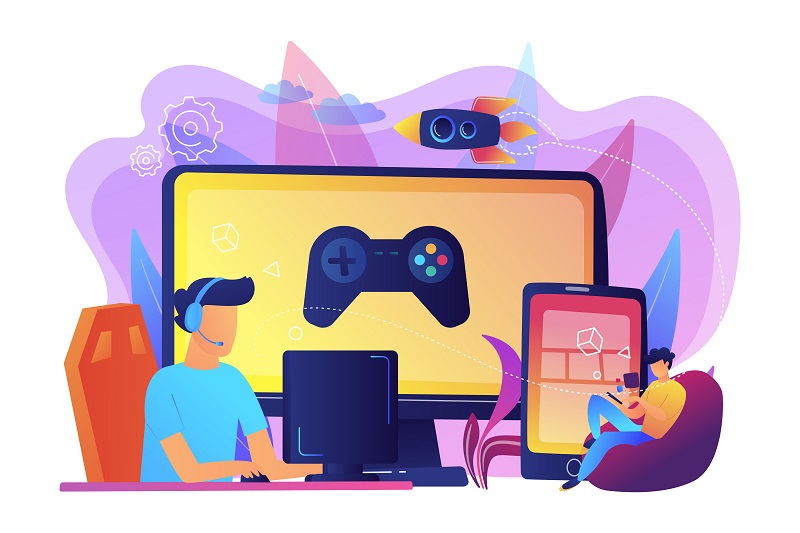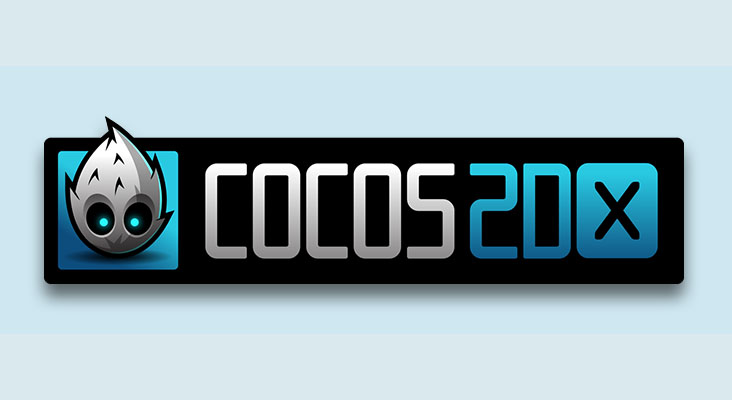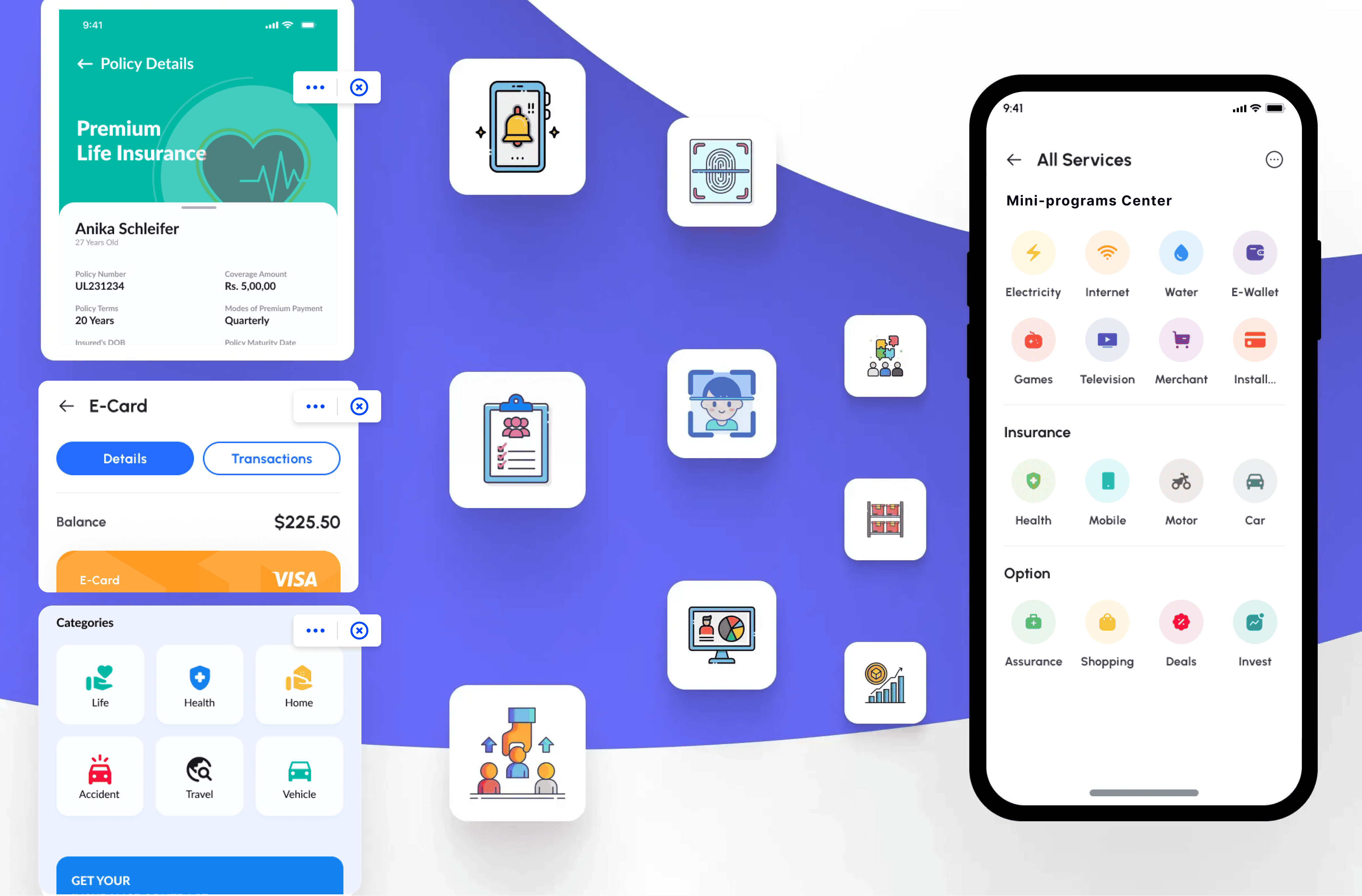Cross-Platform Mobile Game Development: Unlocking Universal Gaming Experiences
In the face of a downturn in the global gaming market, cross-platform development has become a key focus for game developers seeking new growth opportunities.
Developing games for multiple platforms enhances user experience by broadening gameplay scenarios and increasing player engagement, which boosts user retention. It also helps overcome platform barriers, enlarges the user base for console and PC games, addresses the limitations of mobile gaming hardware, and extends the product's lifecycle. Additionally, cross-platform games often benefit from lower channel fees, facilitating revenue growth.
According to third-party reports, nearly all studios surveyed in 2023 opted to develop cross-platform games. Compared to the previous year, the number of games available on three or more platforms increased by one-third, with 40% choosing to launch simultaneously across multiple platforms.
A Unity report reveals that 87% of multiplayer gamers have experienced cross-platform games, with 43% of them looking for more such options. Additionally, VB Live reports indicate that implementing cross-platform compatibility can boost revenue by 20-40%. This trend is set to continue and expand as players increasingly recognize its benefits. With mobile platforms experiencing the fastest growth in avid gamers, developers must prioritize cross-platform game development.
Software developers employ cross-platform mobile game development to ensure their games work seamlessly across various devices and platforms. What is required for successful cross-platform mobile game development? Do these strategies differ from traditional software development methods?

What is Cross-Platform Mobile Game Development?
Cross-platform mobile game development involves creating, distributing, and maintaining games that function across various mobile devices and operating systems. Developers must ensure the game operates smoothly on different platforms, requiring knowledge of both iOS and Android development to optimize features and resource usage.
This process also includes developing games that are playable on the web, often hosted in the cloud. Developers should understand web app development to enhance graphics, on-screen commands, and control sensitivity.
Thorough testing on multiple devices is crucial to confirm the game loads and runs correctly on all intended platforms. Developers may need to create specific libraries for different devices to ensure a consistent user experience despite varying hardware limitations.
Given the vast number of games available, developers need to understand the competitive landscape across different game categories, including adventure, card, puzzle, arcade, multiplayer, action, and strategy games.
In cross-platform mobile game development, experts use a unified codebase to create 2D and 3D games, leveraging various development tools and graphics. Key tools include game engines, scripting languages, and cross-platform SDKs.
Key elements of cross-platform mobile game development include:
Unified Codebase: Developers write and maintain a single codebase that works across multiple platforms, which simplifies the development process and reduces time and cost.
Development Tools and Frameworks: Tools like Unity, Unreal Engine, and frameworks such as Xamarin and React Native are commonly used to facilitate cross-platform development by providing shared features and libraries.
Consistent User Experience: Developers must ensure the game provides a seamless and consistent experience across different devices, accounting for variations in screen size, performance, and operating system features.
Web Integration: Cross-platform development can also involve creating games that are playable on the web, often hosted in the cloud. This requires an understanding of web app development to optimize graphics, controls, and performance.
Testing Across Devices: Rigorous testing on various devices is essential to ensure the game functions properly on all targeted platforms, allowing developers to address any compatibility issues.
Optimized Performance: Developers may need to create device-specific libraries or adapt game assets to ensure optimal performance and user experience on different hardware.
Cross-platform mobile game development allows developers to tap into a larger user base, streamline the development process, and ensure a broader reach for their games.

When to Choose Cross-Platform Mobile Game Development?
Cross-platform mobile game development is ideal for creating games that function across multiple platforms and devices. Here are key reasons to consider this approach:
Multi-Platform Launch: If you plan to release your game on both iOS and Android, cross-platform development allows you to use a single codebase, adaptable to both platforms, instead of writing separate code in different languages.
Time Constraints: Developing one cross-platform game is generally faster than creating separate native apps for iOS (Objective-C/Swift) and Android (Java/Kotlin), which can be time-consuming and complex.
Budget Considerations: While native app development for a single platform might be cheaper, creating separate native apps for different platforms can be costly. Cross-platform development reduces costs by consolidating your efforts into one project.
Wider Market Reach: Launching your game on multiple platforms simultaneously broadens your user base and potential revenue. It also appeals to gamers who value features like cross-platform play and seamless device transitions.
Simplified Updates: A unified codebase streamlines the update process, allowing you to deploy changes across all platforms simultaneously, rather than updating each platform separately.
Choosing cross-platform development can save time and money while enhancing your game’s reach and user experience.
Cross-Platform Mobile Game Development Challenges
Cross-platform mobile game development offers significant advantages in reaching a broader audience, but it comes with its own set of challenges. Addressing these challenges effectively is crucial to delivering a high-quality gaming experience across multiple devices and platforms.
1. Cross-Platform Visual Precision
The most direct benefit of cross-platform gaming is its ability to break down platform barriers, meet the diverse needs of different types of users, and foster greater interaction among various player communities, creating a larger collective momentum.
Different gaming platforms have their unique advantages catering to distinct player experiences. For instance, PC games are known for their high-quality visual effects, console platforms focus on superior control and feel, and mobile games offer the convenience of play anywhere and anytime.
However, as the trend towards cross-platform play becomes more pronounced, the boundaries between gaming platforms are gradually blurring, leading to new challenges.
For example, console development requires teams to adapt to various hardware standards and rules set by console manufacturers, while PC game development, though flexible, often faces issues with adapting to different PC configurations. Despite the similar performance levels between consoles and PCs, platform barriers are relatively easier to overcome. In contrast, cross-platform development between mobile devices and PCs presents greater challenges.
One of the primary challenges in cross-platform mobile game development is maintaining visual precision across different devices. Various platforms have different screen resolutions, aspect ratios, and pixel densities. Ensuring that the game's graphics look sharp and consistent on all devices requires extensive adaptation. Developers often need to create scalable assets and implement responsive design principles to maintain visual fidelity, which can be complex and time-consuming.
2. Integrated Development Difficulties
Developing a game that seamlessly integrates across multiple platforms can be challenging. Mobile games often require optimization for different hardware capabilities and operating systems. For example, iOS and Android devices have distinct hardware and software environments, necessitating different approaches to performance optimization. Achieving a unified experience while managing these disparities can complicate the development process and require significant effort in testing and tuning.
3. Compatibility and Adaptation Issues
Compatibility across diverse devices and operating systems is another significant challenge. Different platforms may have unique APIs and system requirements that affect how the game functions. Ensuring that the game performs well and remains stable across various devices requires rigorous testing and adaptation. Developers must handle issues such as varying device performance, memory constraints, and OS-specific features to ensure a smooth gaming experience for all users.
4. Codebase Management
Managing a single codebase that serves multiple platforms can be challenging. While cross-platform development aims to streamline the process, it can also introduce complexities in code management. While reusable code offers a promising solution, maintaining consistency across multiple platforms is challenging. Developers must maintain a balance between writing platform-agnostic code and addressing platform-specific issues. This often involves using conditional code, abstracting platform-specific functionalities, and ensuring that updates are consistently applied across all versions. Each operating system has its unique quirks that must be addressed, and thorough testing is crucial, as many cross-platform games are released with overlooked bugs, leading to time-consuming fixes.
5. Integration
The integration phase presents challenges beyond just cross-platform development, affecting all types of development and testing. Some frameworks may lack support for integrating with various device settings, and different platforms have specific requirements for social media integration, which must be incorporated to effectively promote the game. While these issues can be managed, they can be quite complex.

Tips for Cross-Platform Game Development
Cross-platform game development demands a balanced approach, combining technical considerations with user experience to create a game that is both accessible and engaging across various devices. Here are some key tips to optimize the process and outcome:
1. Integrate Social Features
Incorporate social features such as multiplayer capabilities, chat systems, and social media sharing to expand your game's reach. These features foster community building and player engagement, making the game more appealing and improving player retention across different platforms.
2. Develop Internal Tools
When existing tools fall short for your cross-platform project, consider investing in custom internal tools. These tailored solutions can streamline development, enhance team efficiency, and address specific challenges unique to your game.
3. Adopt a Microservices Approach
Utilizing a microservices architecture can be highly advantageous. This approach enables different teams to work on separate game components concurrently, facilitating easier updates and scalability. It also simplifies managing complex systems by breaking them into smaller, more manageable services.
4. Reuse Components
Reusing code and assets across platforms can save time and resources. Identify components such as game mechanics, backend services, and certain assets that can be shared, while being mindful of platform-specific nuances to ensure adaptability.
5. Maintain a Unified Art Style
Consistency in art style is essential for cross-platform games. A unified aesthetic ensures a cohesive visual experience for players regardless of their device, strengthens the game's brand identity, and enhances the overall user experience.
Choosing the Best Language for Cross-Platform Mobile Game Development
When it comes to cross-platform mobile game development, selecting the right programming language is key to achieving high performance and broad compatibility. Here’s an overview of three popular languages used in this field:
1. C++
C++ is a widely used language for cross-platform mobile game development, exemplified by popular games like Clash of Clans. Its advantages include:
Broad Platform Support: Both iOS and Android support C++-written apps, making it a versatile choice for reaching a wide audience.
High Performance: C++ offers exceptional performance and scalability, crucial for resource-intensive mobile games.
Efficiency: Its low-level capabilities allow for fine-tuned control over system resources, leading to optimized game performance.
2. JavaScript
JavaScript is another prevalent choice for cross-platform mobile game development, favored for several reasons:
Modern Frameworks: JavaScript frameworks, such as Phaser and Babylon.js, come with expansive libraries and tools, facilitating complex animations and interactive features.
Cross-Platform Compatibility: JavaScript enables the creation of games that run on both iOS and Android, as well as web-based platforms.
Flexibility: Its dynamic nature and widespread use in web development make it a good fit for games that need to function across various environments.
3. HTML5
HTML5 offers significant advantages for cross-platform mobile game development:
Multifunctionality: HTML5 supports not just mobile platforms (iOS and Android) but also desktop environments (Windows, Linux, Mac OS) and web browsers (Chrome, Safari, Opera).
Broad Reach: Its ability to run in any modern web browser makes it ideal for games that aim for a wide audience across different devices and operating systems.
Ease of Deployment: HTML5 games can be easily distributed and updated through web platforms, reducing the need for app store submissions and updates.
Choosing the best language for cross-platform mobile game development depends on your specific needs:
For High Performance: Opt for C++ if you need top-tier performance and scalability.
For Rich Interactive Features: JavaScript is suitable for complex animations and modern development frameworks.
For Broadest Compatibility: HTML5 excels in providing wide-reaching support across multiple platforms, including web browsers.
Each language offers distinct benefits, so consider your game’s requirements and your team's expertise to make the best choice for your development project.
Cross-Platform Mobile Game Development Engines
Developing cross-platform mobile games involves navigating various challenges and leveraging the right tools to create engaging experiences across different devices. Central to this process are game development engines, which provide the framework and tools needed to build games that function seamlessly on multiple platforms. Here’s a look at what game engines are and some of the most popular options for cross-platform development:
What Are Game Development Engines?
Game development engines are software platforms that provide a comprehensive suite of tools and features for creating video games. These engines facilitate the development process by offering built-in functionalities such as rendering, physics, sound, and scripting. They help streamline the creation of games by providing a unified environment where developers can design, test, and deploy their games efficiently.
Top Cross-Platform Game Development Engines
Unity
Unity is one of the most popular game engines for cross-platform development. It supports a wide range of platforms, including iOS, Android, Windows, macOS, and more.
Features: Unity offers a user-friendly interface, extensive asset store, and a robust ecosystem of plugins and tools. It supports both 2D and 3D game development and provides powerful scripting capabilities using C#.
Strengths: Versatile, well-supported, and suitable for both small and large-scale projects.

Unreal Engine
Unreal Engine, developed by Epic Games, is known for its high-fidelity graphics and advanced capabilities. It supports various platforms, including mobile, PC, and consoles.
Features: Unreal Engine boasts a visual scripting system called Blueprints, which allows developers to create complex game logic without extensive coding. It also provides high-quality rendering and a comprehensive suite of tools for game development.
Strengths: High performance, stunning graphics, and powerful development tools.

Godot Engine
Godot is an open-source game engine that supports cross-platform development for mobile, desktop, and web platforms.
Features: Godot offers a unique scene system, flexible scripting with GDScript (similar to Python), and a user-friendly interface. It supports both 2D and 3D game development.
Strengths: Lightweight, free, and highly customizable with a strong community backing.

Cocos2d-x
Cocos2d-x is an open-source game engine known for its efficiency and performance in 2D game development. It supports multiple platforms, including iOS, Android, and Windows.
Features: Cocos2d-x provides a set of tools and libraries for developing 2D games, with support for scripting in C++, Lua, and JavaScript.
Strengths: Lightweight, optimized for 2D games, and has a strong focus on performance.

Flutter (with Flame Engine)
While not a traditional game engine, Flutter is a UI toolkit from Google that, when paired with the Flame engine, can be used for game development. It supports iOS, Android, and web platforms.
Features: Flame is a lightweight game engine built on top of Flutter, offering tools for game development within the Flutter framework. It is suitable for 2D games with a focus on UI and user experience.
Strengths: Integrates well with Flutter’s capabilities, providing a smooth UI experience and cross-platform support.

Choosing the Right Engine
The best engine for your cross-platform mobile game development depends on several factors, including the type of game you’re creating, your team’s expertise, and specific project requirements. Consider factors such as:
Platform Support: Ensure the engine supports all target platforms.
Performance Needs: Evaluate the engine’s capabilities in handling your game’s graphics and processing requirements.
Development Resources: Choose an engine that aligns with your team’s skills and the project’s complexity.
Community and Support: A strong community and robust support resources can be invaluable for troubleshooting and development.
Selecting the right game engine is a critical step in developing a successful cross-platform mobile game, influencing both the development process and the final player experience.
Cross-platform mobile game development has transformed the gaming industry by changing how players access and interact with games and how developers manage deployment and maintenance. This process involves understanding iOS, Android, and web app development, as well as mastering various programming languages. Developers use game development engines tailored to their needs, choosing based on ease of use, game complexity, and their own experience.
To successfully build a cross-platform mobile game, it's essential to understand your target audience, design and test the game across different devices, and provide ongoing support after launch. Utilize online resources and developer communities to learn about best practices, fix bugs, and choose the best game development engines for your project.



